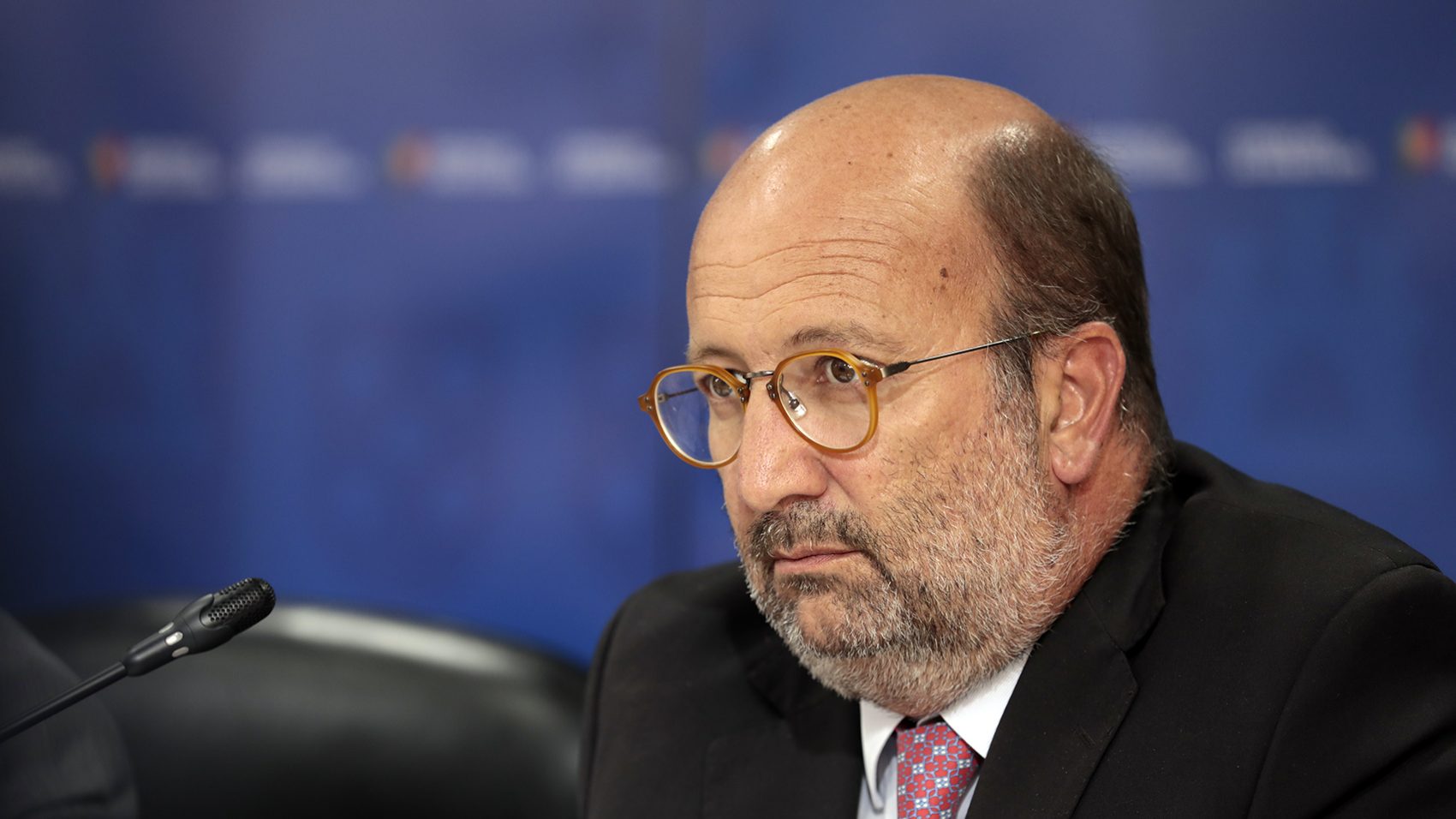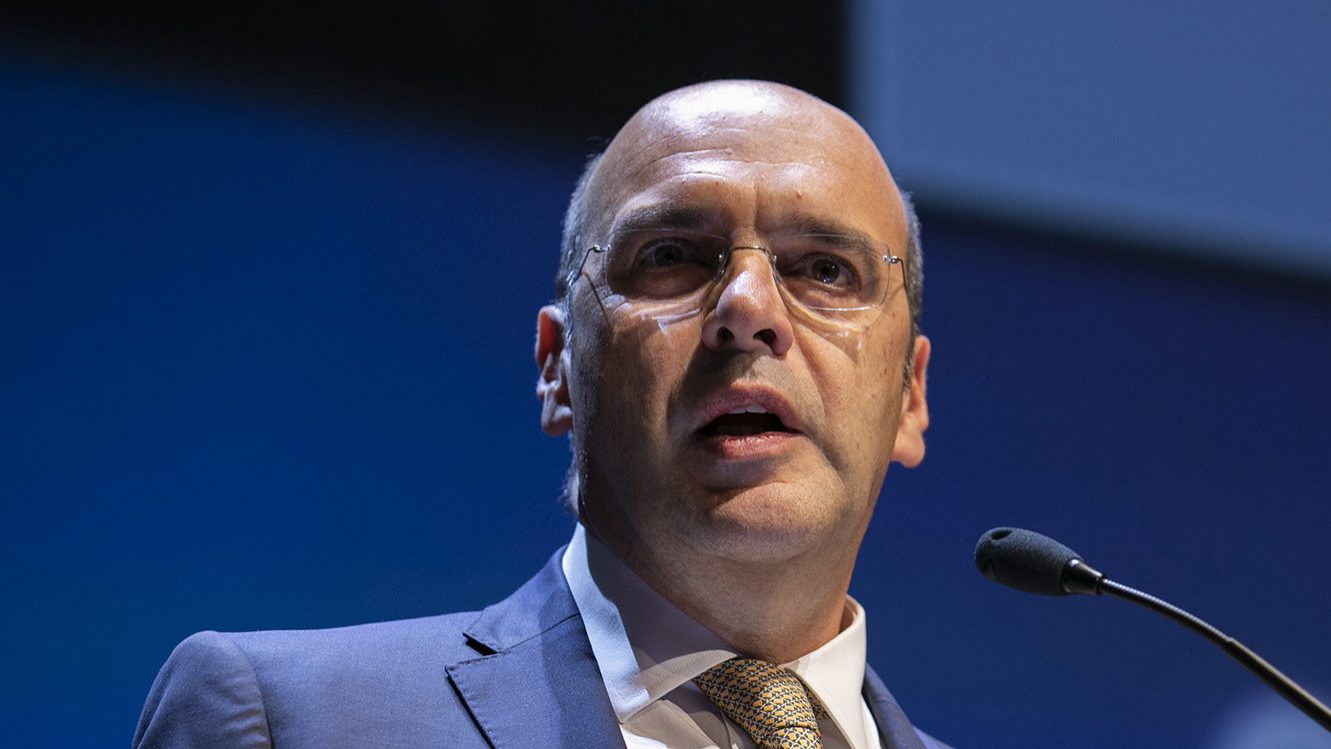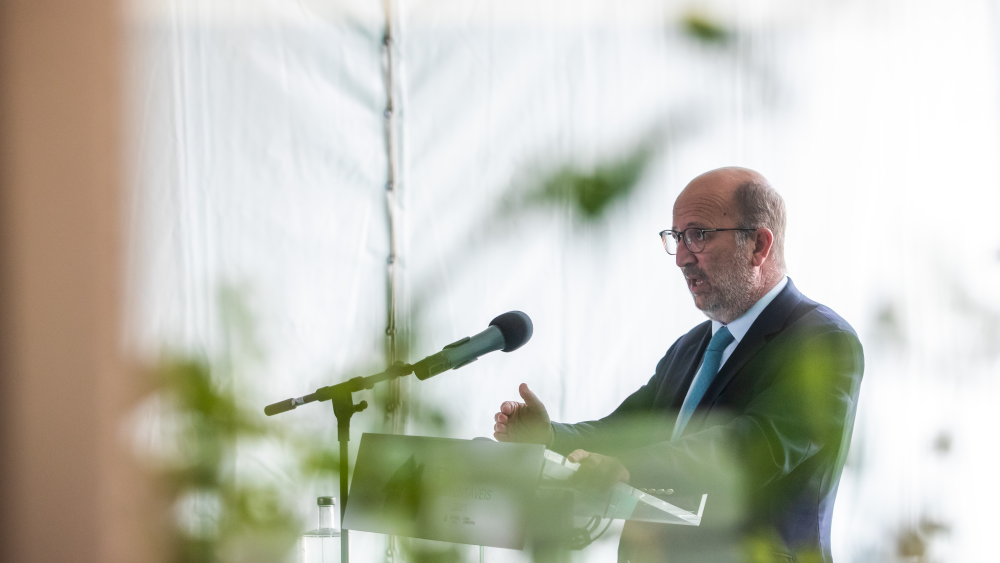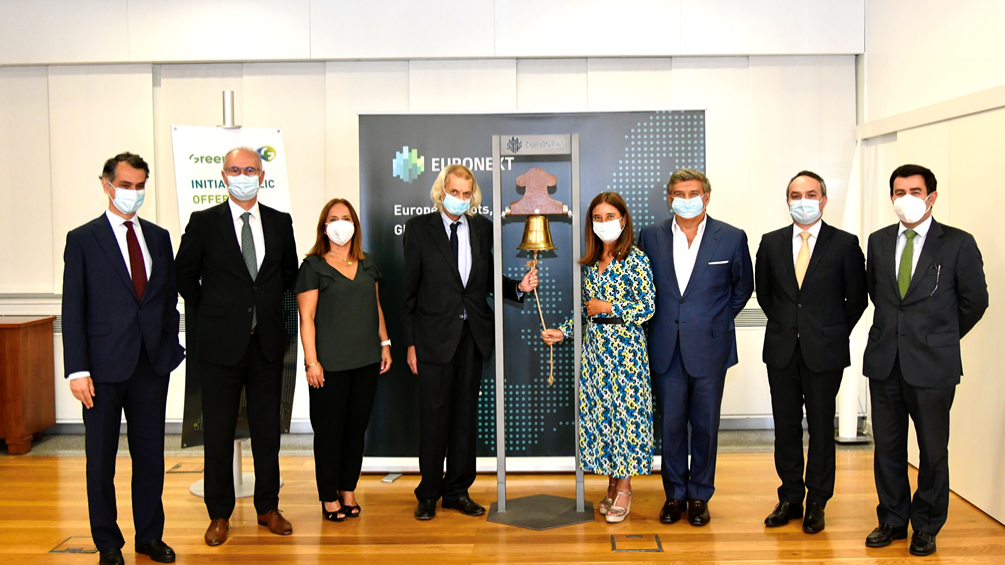Environment minister accuses oil companies of operating in ‘informal oligopoly’
In an interview with ECO, Matos Fernandes said it was "unfair" that oil companies could increase margins and create distortions. He assures that the government will not fix pump prices.
The minister of the environment and climate action, João Pedro Matos Fernandes, argues that it is “unfair” that oil companies and petrol stations can increase fuel prices when consumption is reduced, as was the case during the Covid-19 pandemic, in which demand plummeted.
In reaction to statements by the secretary-general of the Portuguese Association of Oil Companies (APETRO), António Comprido – who admitted in a statement to ECO/Green Capital that a rise in gross margins on fuel (but not in profits) was “inevitable” – Matos Fernandes guarantees that “this comment is the proof of an informal oligopoly.”
“When they say that because demand has fallen, margins have to be increased, that can only work in an oligopoly. When demand falls, what is done is to lower the prices to sell more. APETRO’s own justification is that they say they have to increase the prices because consumption has fallen. We think it’s unfair and so we need to have this power to intervene,” argued the minister in an interview with ECO/Green Capital.
Hours earlier, in Parliament, and after a report by the National Entity for the Energy Sector (ENSE) attributed the rise in fuel prices to the increase in oil company margins, Matos Fernandes announced that “the Department of Environment and Climate Action will propose, even today [Wednesday], a decree-law that allows the government to act on fuel marketing margins, so that the fuel market reflects its true costs.”
The minister explained to ECO that the decree-law is still being completed to be delivered for consideration and later promulgation, or not, by the President of the Republic and, finally, its publication in Portugal’s Official Gazette. “I don’t believe that in less than two months this process will be completed,” he said.
According to the minister, the objective is that, whenever there is a decrease in raw material prices, “it is felt and appropriated by consumers instead of being appropriated by the commercial margins, avoiding sudden and potentially unjustified increases.”
The decision is justified, guarantees Matos Fernandes, based on the most recent report by the supervisory entity ENSE – National Entity for the Energy Sector “which proves that, compared to 2019, the fuel margin has increased by 33% in petrol and 8% in diesel. It is factual,” he says.
“It was from the moment we received the ENSE report that we realised we had to act. From the time ENSE robustly showed that the oil companies had increased their margins compared to the period before the pandemic, the government (which has no involvement in pricing) felt that it should claim that capacity for itself,” the minister told ECO/Green Capital.
Matos Fernandes guarantees that the government cannot fix pump prices. But he said he could “intervene to limit the maximum margin of marketing in short periods and extreme situations,” such as the current one. “Increasing the margins of petrol by 33% means more 9.6 cents per litre. If the government had this power now, which it does not have, it would be a reason to intervene now,” he explained
Assuring that he does not agree with the PCP proposal for the administrative fixing of fuel prices, the Minister assured that “the fuel market continues to be completely free”.
However, “when it is found, proven by the regulator, who will make this analysis day by day and will make it public every week, that the margins have unjustified values in a good that is used by almost all Portuguese, the government wants to have this availability to be able by decree to correct these distortions,” he explained.
For Matos Fernandes “it makes no sense to fix prices, neither in fuel nor in-cylinder gas, because the price at source has a very relevant component. The price of crude oil fluctuates a lot and that will not be reflected in our measure,” he concluded.
Anticipating already criticism from environmentalists, Matos Fernandes says that with this measure “the government is not trying to facilitate the use of fossil fuels. Everything we’ve done goes in the opposite direction: the subsidies we’ve given to electric cars, the end of perverse subsidies given to coal-fired power generation, which only required a 50% ISP tax for power stations to close because they’re out of business. Here it is a question of justice, it is not about any desire to increase the use of fossil fuels.”



